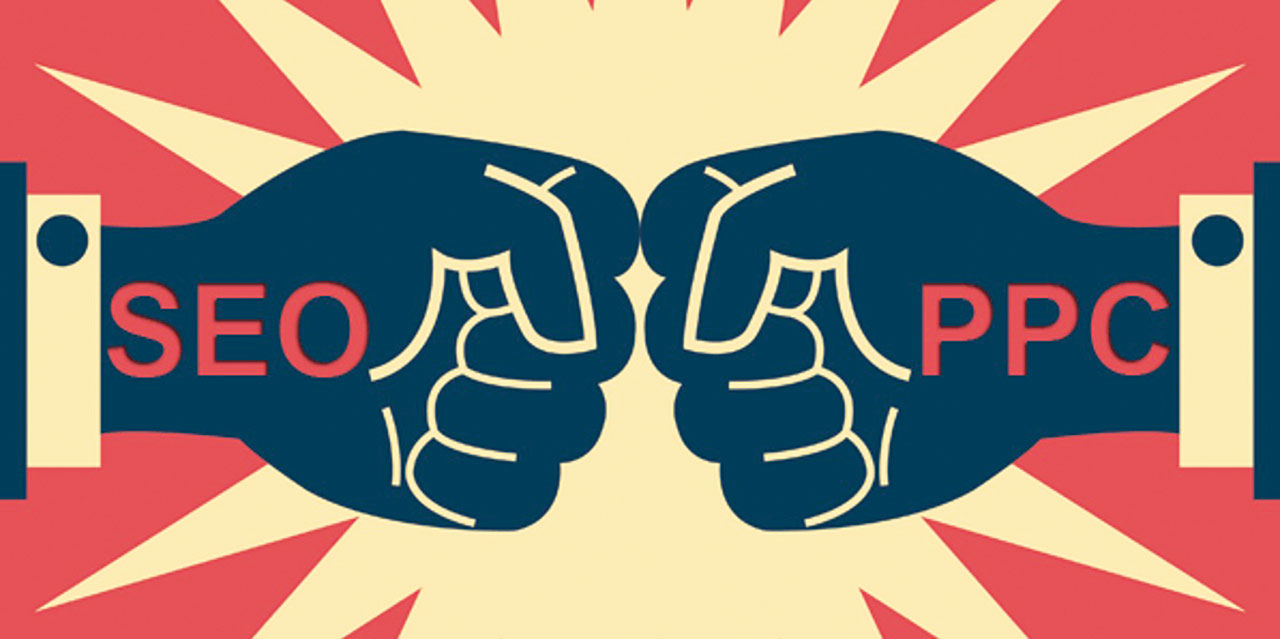
SEO (search engine optimisation) and PPC (Pay Per Click) should be comrades intent on winning the same battle, but why is it that in some organisations, SEO and PPC teams seem to be at war? It seems that, especially in larger teams or cross-agency, that SEO and PPC are seen as competing forces, with each feeling like they are turning to the dark side if they collaborate.
But the opposite is true – by combining forces, SEO and PPC have many areas of overlap. SEO and PPC teams that work together for the common goal can see extraordinary results that leave their competitors in the dark.
There are endless reasons why SEO and PPC should work together, however, here are my top five reasons why running complimentary campaigns can add significant value:
Leveraging PPC keyword data for organic SEO
Organic search consultants use various tools to help form a site’s optimisation strategy such as Google Analytics, Google Search Console and various other paid-for SEO platforms. However, Google AdWords provides a host of tangible data including which keywords bring traffic to the site, and more importantly, which keywords actually convert. This valuable information can be used by SEO teams to inform organic search campaigns to ensure the hard-work spent optimising a landing page for a specific keyword is going to drive revenue.
Juggling PPC and SEO activity to get results
SEO and PPC teams should work collaboratively to roll out the campaigns that will get the best results for the client. PPC can be used to target keywords that aren’t ranking naturally, it can gather data, inform the organic strategy and as the site moves up the natural rankings, PPC can be filtered across to another keyword, and the same process can start again.
Concentrate on expensive keywords with SEO
In some industries, it is uneconomical to build PPC campaigns around the holy grail keywords because they are just too expensive. According to Search Engine Watch*, gambling dominates the most expensive keywords with ‘play live blackjack’ being the most expensive keyword term costing £148.51 per click. Other industries that need deep pockets if targeting top-level keywords include technology, finance and legal. In these cases, using PPC for longer-tail keywords and focusing time and effort on generating top natural rankings can pay dividends.
On-site SEO updates benefit PPC quality scores and reduce cost per click
A key action for SEO is to optimise landing pages for natural search, however, working closely with PPC, we can optimise for Ad quality as well, which drives up your PPC quality score. A good quality score will help to gain higher PPC ranking positions and reduce the cost per click, leaving additional budget to reallocate.
PPC remarketing brings visitors back
Organic SEO can bring new visitors to your website but in a lot of cases, the web visitor won’t make a decision there and then. Our natural instinct to shop around means that your site is often one of many visited before the user makes contact. PPC remarketing enables you to increase your conversion rate by bringing the hard-earned traffic back to your site.
www.smartmonkey.co.uk
beth@smartmonkey.co.uk
@Bethanie_Nash






